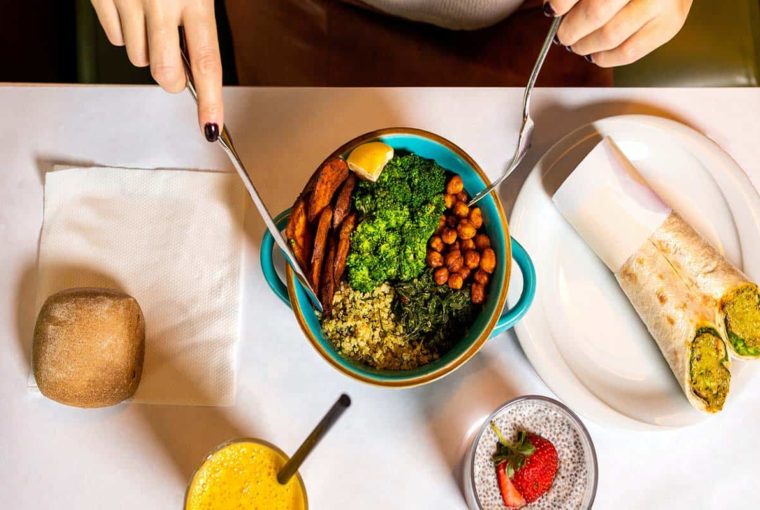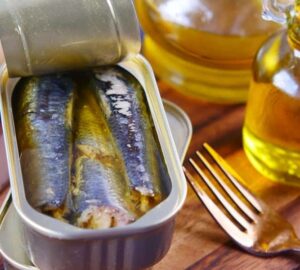Let’s face it, we’ve all tried to lose weight at some time in life. However, it is not as simple as it appears. Weight reduction advice is frequently disseminated on social media, and accepting such guidance may end up harming your health and quality of life, as well as causing you to gain weight rather than lose it!
Crash diets and bad weight loss tips can interfere with your metabolic activities as well as the condition of your hair and skin, so it’s critical to lose weight in a healthy way.
However, there are some weight-loss diets that we assume as healthy but are actually misconceptions. Avoiding these weight-loss myths would not only help with weight loss quickly, but it will also guarantee that you stay good in the long term.
How Genes Affect Weight Loss
Simply put, our weight gain is proportional to the number of calories we eat, store, and burn. However, it is not as straightforward as it appears. A mix of genes and environment influences each of the factors.
Both can influence your physiology and behavior, meaning that they have a direct effect on how many calorie intakes you can store/burn and what foods will affect your body weight. Our body’s ability to retain and burn calories is determined by three factors:
- Our genetic make-up
- Physical activity level
- Resting energy expenditure that implies the number of calories our body burns while at rest.
If you find it difficult to lose weight, then you should try at-home DNA tests. More solutions to this problem you can read on this page. These tests can reveal a lot about your body and how your body could be wired to store fat, metabolize carbs, and respond to different diets.
Losing weight in a way that is inconsistent with these inborn characteristics might be a difficult task. However, if you are aware of these characteristics, you may be able to adjust your weight-loss tactics to work with your body rather than against it, resulting in more satisfying outcomes.
6 Common Weight Loss Myths
1. Myth: Skipping Meals Helps You Lose Weight
Eating adequate meals throughout the day is beneficial to your metabolism, and a healthy metabolism is essential for weight loss. Breakfast is extremely damaging to your weight loss objectives, so keep an eye on what’s on your table, but never miss a meal.
You shouldn’t skip meals. For weight loss to last, you must reduce your calorie intake and raise your activity output. Absenteeism, on the other hand, can lead to fatigue and vitamin deficiency. Your snacking tendencies will also increase, which could lead to weight gain.
2. Myth: Sugar-Free Products Are Good for Weight Loss
Artificial sweeteners are frequently associated with weight loss. However, research has shown that ingesting artificial sweetener has around the same amount of calories as traditional products.
Sugar alternatives have the potential to lower your calorie consumption, but there is no assurance that they will.
3. Weight Loss Myth: All Carbohydrates Are Bad
People who wish to reduce weight have a negative perception of carbohydrates, which is why low-carb diets are becoming more and more popular. Carbohydrates from whole vegetables and legumes, on the other hand, are necessary for a healthy heart and brain.
Furthermore, removing one entire food item from your diet is not useful for weight loss because it is not permanent, and people on low-calorie diets are more likely to cheat. As long as they’re consumed in the proper quantities and as part of a healthy diet, carbs won’t cause weight gain on their own (without adding butter, creamy sauces, etc.).
Eat whole grains and wholemeal carbs such as white rice and wholewheat, and potatoes with the peels on to improve your intake of fiber, and avoid frying starchy foods while looking to lose weight.
4. Weight Loss Myth: Raw Food Is Better Than Cooked Food
Raw foods have gained popularity in recent years, and they’ve even been linked to weight loss. Food products, on the other hand, are more healthy than raw foods because cooking releases the micronutrients in the food, making them more easily absorbed by the body.
5. Myth About Weight Loss: Avoid All Fats
Not all fats are unhealthy; in fact, some might aid weight loss! Polyunsaturated fat can assist your body in burning more fat. As a result, foods such as olive oil, cocoa butter, ghee, cocoa powder, and almonds may aid in weight loss.
When trying to reduce weight, eating isn’t the problem; if it’s the sort of snack. Many individuals, especially those who lead an active lifestyle, require a snack between those meals to sustain energy levels. Opt for fruits and vegetables instead of foods that are heavy in sugar, sodium and fat.
6. Breaking Your Meal Into Smaller Quantities Is a Weight Loss Myth
It is a frequent misconception that cutting your meal into smaller pieces causes you to consume less calories. However, whether you consume three meals or two small ones, the total calorie amount is more important.
So there you have it! It’s past time for us to abandon these popular weight-loss fallacies and myths. It is critical to keep a regular exercise as well as eat a nutritious diet whenever it comes to weight loss. One cannot compensate for the other, and both are vital.
Long-term fat loss is unlikely to result in crash diets. Indeed, they can contribute to weight increase over the long run in some cases. The primary problem with this type of dieting is that it’s difficult to keep up with. As a result of the limited range of food ingested during a crash diet, you may also be deficient in vital nutrients.
As a result, your body will be depleted of energy and you may find yourself craving foods high in fat and sugar content. A weight increase can result from eating these meals and consuming more calories than you require.




